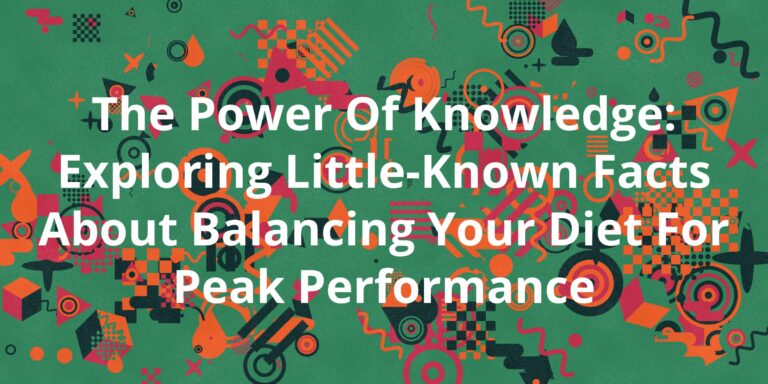Balanced nutrition is essential for maintaining good health and preventing chronic diseases. However, many people struggle to understand what it means to eat a balanced diet and how to achieve it. In this article, we will explore the truth about balanced nutrition that will change your life.
Firstly, let’s define balanced nutrition. It refers to a diet that contains all the essential nutrients that our bodies need to function properly. This includes carbohydrates for energy, protein for growth and repair, and fats for cell membrane function. Additionally, it includes vitamins, minerals, and other micronutrients that are necessary for various bodily functions.
Many people believe that a balanced diet means eating a lot of meat and dairy products. However, this is not entirely accurate. While these foods do provide protein and calcium, they can also be high in saturated fat and contribute to chronic diseases such as heart disease and diabetes. Instead, a balanced diet should include a variety of plant-based foods, such as fruits, vegetables, whole grains, and legumes.
Another common misconception is that you need to eat a lot of food to be healthy. However, this is not the case. In fact, many people overeat and consume more calories than their bodies need. This can lead to weight gain, which can increase the risk of chronic diseases such as obesity, heart disease, and diabetes.
To achieve a balanced diet, it’s important to focus on eating whole foods that are rich in nutrients. This includes fruits, vegetables, whole grains, legumes, nuts, and seeds. These foods provide fiber, which helps regulate digestion and can help prevent chronic diseases such as colon cancer.
In addition to eating whole foods, it’s important to limit processed foods, sugary drinks, and alcohol. These foods are often high in added sugars and unhealthy fats, which can contribute to chronic diseases such as obesity, heart disease, and diabetes.
Finally, it’s important to remember that everyone’s nutritional needs are different. Some people may require more protein or fat in their diets, while others may need more carbohydrates. It’s important to work with a registered dietitian or healthcare provider to determine your individual nutritional needs and create a plan that works for you.
In conclusion, balanced nutrition is essential for maintaining good health and preventing chronic diseases. By focusing on whole foods, limiting processed foods, sugary drinks, and alcohol, and working with a registered dietitian or healthcare provider to determine your individual nutritional needs, you can achieve a balanced diet that will change your life.



